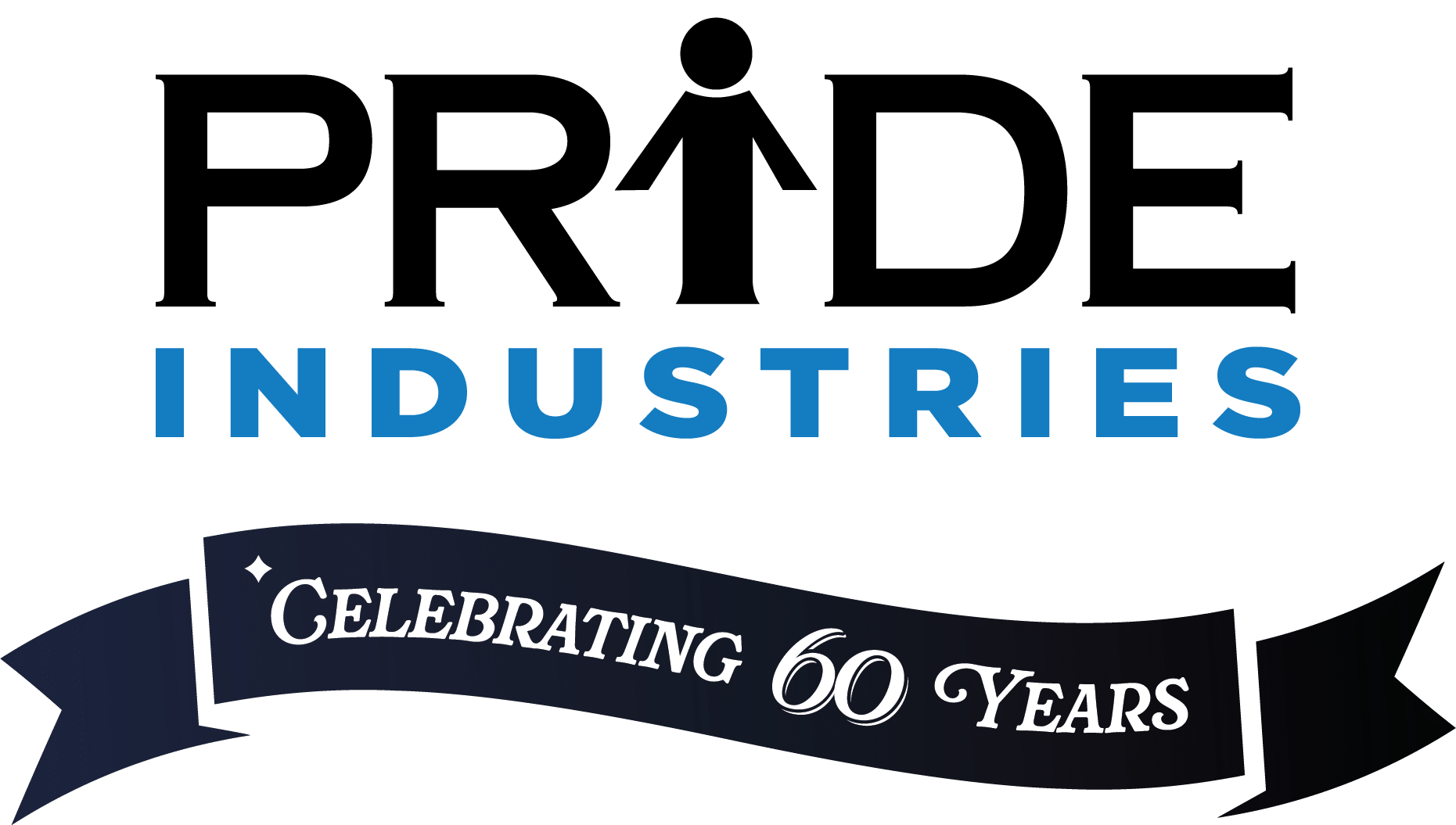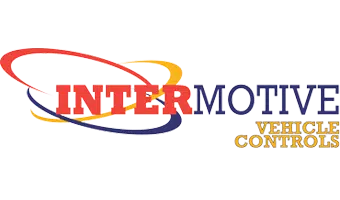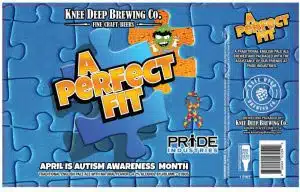The humble cable harness is an unsung hero of electronics products, quietly doing its work to keep wires connected to power sources and linking components to ensure smooth, reliable, continuous operation. Cable harnesses organize and streamline wires within products and are critical to long-term performance. Cable harnesses may seem simple, but as products become more sophisticated and components continue to shrink in size, they are becoming more complex, able to work in challenging environments that require corresponding sophistication in design and assembly.
Benefits of Cable Harnesses
Cable harnesses are common in electronics products because of their many benefits. Well-designed and manufactured harnesses improve product production and performance in the following ways:
Choosing a strong cable harness manufacturer is critical to overall product quality and performance. Here's what to look for.
- Decrease cost compared to manually installing wires one at a time.
- Reduce installation time for projects involving extensive networks of wiring or cabling.
- Improve the organization of cables, making identifying and maintaining connections easier.
- Protect conductors from the elements outdoors or from chemical and moisture exposure indoors.
- Reduce strain and stress on connections by supporting the weight of cables.
- Improve safety by minimizing the risk of shorts or electrical fires.
- Decrease installation and maintenance time by minimizing the number of connections and organizing components in a logical configuration.
Simple design principles amplify the benefits of wire harnesses. Sheaths protect wires against abrasion or exposure to hazards, minimizing the risk of failure. Connectors, clips, lacing, and other organizational elements reduce the space that wiring needs and ensure that technicians can easily locate components when needed.
Given the important role the cable harness plays in electronics devices, choosing a strong cable harness manufacturer is critical to product quality and performance. Here’s what to look for in a manufacturing partner.
Cable Harness Manufacturing Experience
No surprise here. The best cable harness manufacturers are usually the most experienced. While that may seem obvious, not all experiences are equal. For example, different industries have different safety and compliance requirements. Cable harnesses in the medical device industry must use approved components (wires, cables, interconnects, terminals, etc.) and meet high quality and performance standards. The automotive industry has its own material requirements for harnesses, due to high-temperature engine applications and the presence of corrosive gases and liquids, vibration, and exposure to outdoor elements like rain and snow. So make sure that your cable harness manufacturer has experience and a strong track record in your industry.
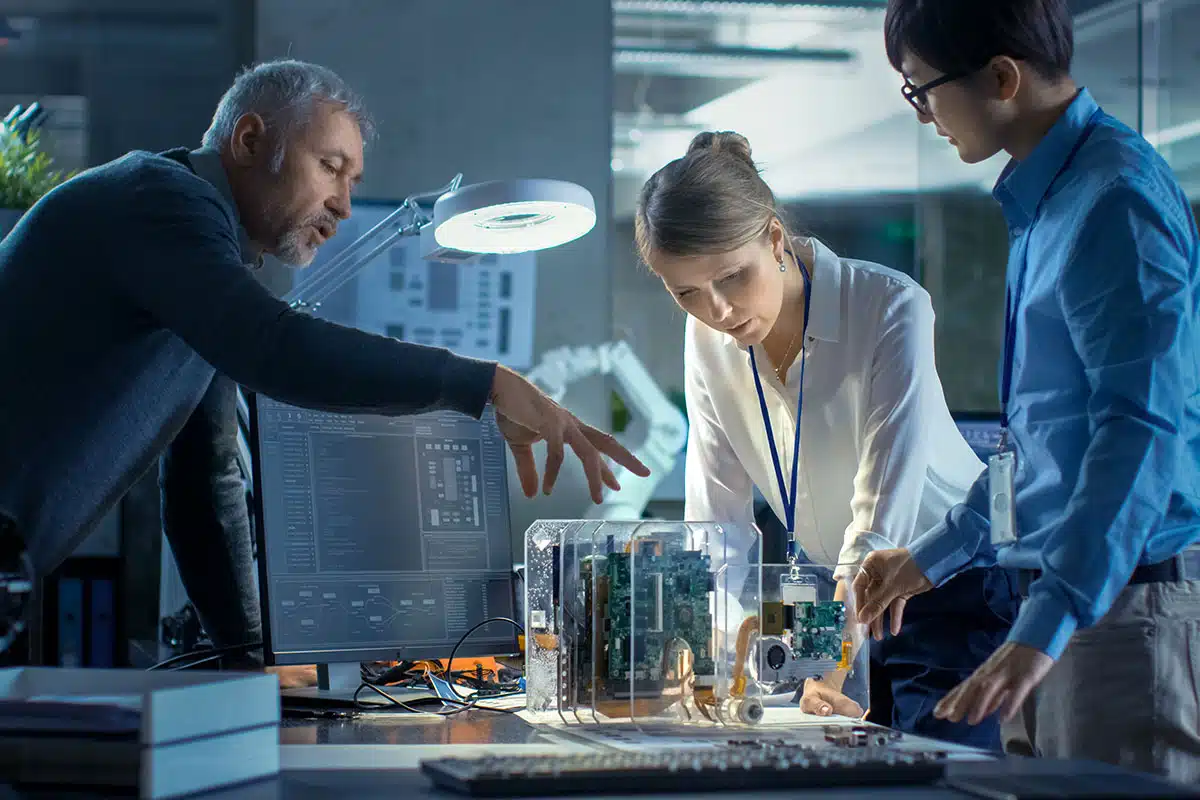
Cable Harness Manufacturing Certifications
Close behind experience comes certifications as an important consideration for selecting a cable harness manufacturer. Manufacturers must comply with the markets’ regulations and demonstrate a track record of creating products that pass industry testing labs. You should expect your manufacturer to have the necessary certifications for producing the type of cable harness you need. These include:
- IPC: IPC is a trade association and standards body for electronic equipment and assemblies’ production requirements. IPC/WHMA-A-620 is the international standard for best practices and requirements for manufacturing cable harness.
- ISO 9001: This is the international standard for a quality management system (QMS) in multiple industries, including cable harness.
- UL/CUL: Underwriters Laboratories (UL/CUL in Canada) verify that products comply with safety standards for the United States and Canada, respectively. UL/CUL is the largest and oldest independent testing lab in the U.S. and its certifications are recognized by OSHA.
- ETL: The Electrical Testing Lab (ETL) is another private lab recognized by OSHA that ensures products meet quality, health, environmental, safety, and social accountability standards.
- ISO 13485: ISO 13485 is the international standard for quality requirements for medical device manufacturing.
- TL9000-H 6.0/5.0: This is the quality management system for the telecommunications industry.
- AS9100 REV D: The quality management system for aerospace manufacturing products.
- ITAR: For aerospace and defense products, the International Traffic in Arms Regulations (ITAR) control the sale, manufacture, and distribution of defense and space-related services and materials on the United States Munitions List (USML).
- RoHS: The Restriction of Hazardous Substances Directive (RoHS 1) guides the restriction of hazardous substances in electrical and electronic equipment in the European Union.
IPC/WHMA-A-620 is the most widely recognized standard for cable harness manufacturing and the most important certification for a manufacturer. Adhering to this standard ensures product quality, reliability, and consistency.
Cable Harness Components
While a cable harness may look like little more than a bundle of wires, it is, in fact, an intricate system of components—a subsystem within electronics products. Key components include:
- Wires: Also called conductors, wires (usually copper) transit electrical signals and power. The choice of wire gauge, insulation material, and strand count can significantly impact the harness’s performance and flexibility.
- Connectors: Fasteners that simplify the connection between wires and other components, acting like plugs to ensure secure connections.
- Terminals: Metal components attached to the end of the wires that link to connectors to complete the connection.
- Sleeving: Coatings protect wires from external elements, abrasions, and other potential damages.
- Ties and Clamps: Straps that organize and support the wires within the device to reduce strain and facilitate maintenance when needed.
- Ferrules: Tubes crimped over stranded wires to secure the strands within a screw terminal.
Cable Harness Wire Connections
Cable and harness assembly typically requires connecting different wires to enable electrical current to travel through the connection. The most common methods of connecting wires are soldering and crimping. Both processes help create secure connections for cables, and they produce long-lasting and high-performing cable connections.
Crimping
Crimping is the process of installing connectors on the ends of cables using a crimping tool, and involves stripping, cutting, and crimping terminals on either side of the wires. Whether manual or automated, proper wire crimping requires specialized tools and materials and must follow certain steps. High-quality crimps form gas-tight joints, which result from compressing specially designed splice bands or crimp terminals with cables and wires. Gas-tight connections prevent corrosion from moisture and oxygen.
Terminal crimping reshapes the strands in a wire to form a low-resistance electrical connection. The connections must be strong, with a single joint that has no breaks or segments, and the crimp must meet the height and width specifications established by the terminal manufacturer. It is important to avoid overly tight connections, as this can reduce the cross-section of the wire.
Soldering
Soldering is a traditional wire termination method and can be more cost-effective than crimping. With this method, alloys of tin, silver, or lead are heated and used to create durable joints that connect contacts to wire conductors. Soldering is commonly used in applications that require dependable power and signal connections.
While soldering offers certain benefits such as affordability, some disadvantages of soldering include:
- Risk of heat-related damage in the connector, contacts, and cables
- Risk of compromised connections due to vibration and corrosion
- More time consuming than crimping
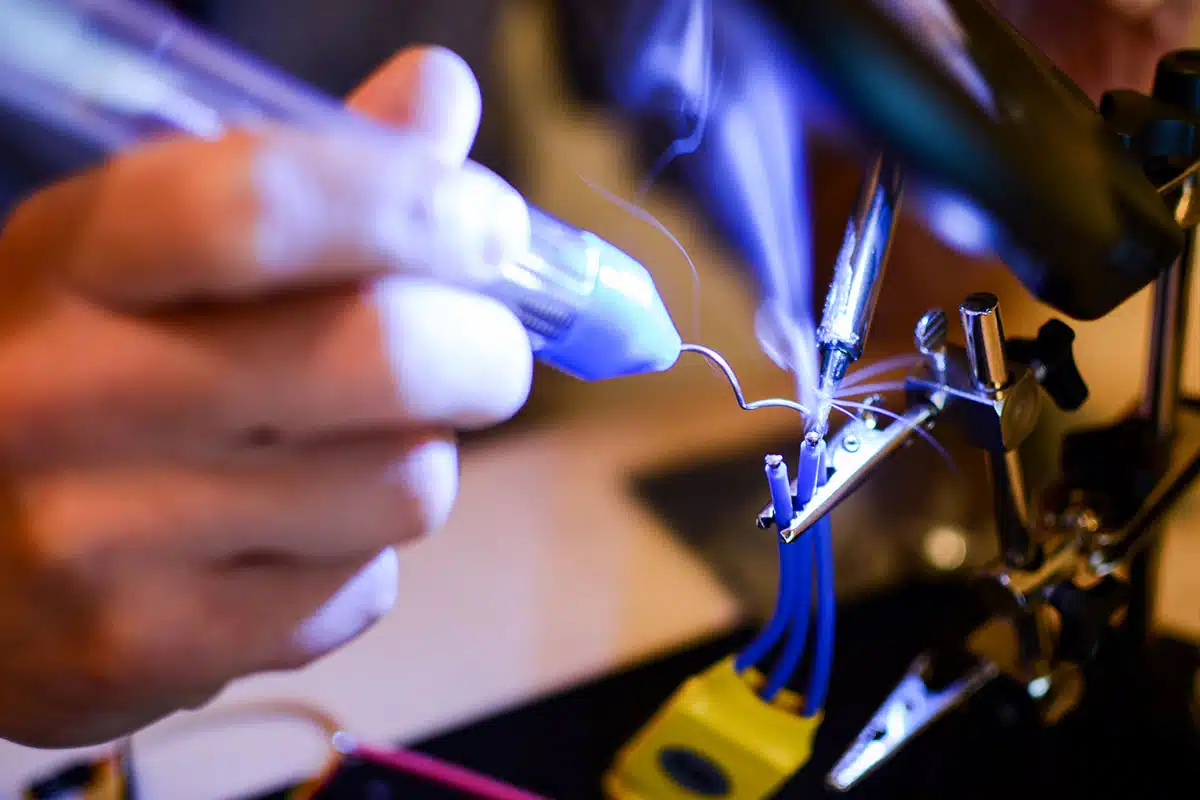
Cable Harness Manufacturing Design
Make sure the manufacturer you choose has an experienced engineering and production team capable of producing cable harnesses that meet design specifications and maintain high-quality standards. For example, one of your first decisions is whether to use automated or manual cable harness assembly. You can automate some steps in cable harness manufacturing, but manual production remains common. Automation is used more often when manufacturing at high volumes and using standard connections. However, complicated or non-standard connections can be produced more cost effectively by hand. Knowing your electronics manufacturer has the tools, know-how, and flexibility to design and produce the right cable harnesses for your device is critical to the success of your product.
Cable Harness Materials
The specific material used in a harness largely depends on its surrounding environment. If the wires are in an environment where moisture is present, for example, the harness should be of a material that is water resistant, such as polyethylene. Cables exposed to vibration or movement that might cause abrasion should be enclosed in a harness with a heat-shrink coating to minimize the effects of chafing. Some of the most common cable harness materials include:
- Polyvinyl Chloride (PVC): PVC is a popular choice for low and medium-voltage wires and is common on indoor telecommunication cables due to its resistance to heat and moisture.
- Fluorinated Ethylene-Propylene (FEP): FEP is tough and weather resistant, yet flexible. It’s also heat resistant, has dielectric properties, and is chemically inert.
- Polyethylene: Polyethylene is lightweight, chemically inert, and ideal for high voltages. Polyethylene is available in different densities and has dielectric properties.
- Nylon: Nylon is a popular choice because it resists weather elements, moisture, abrasion, and chemical reactions.
- Thermoplastic rubber: A rubber material that stretches easily and returns to its previous state after stretching. It is also usable in high temperatures and resists damage from weather, chemicals, and aging.
There are many more options. Your manufacturer should be knowledgeable about cable harness materials and guide you to the right one for your application.
Cable Harness Supply Chain
Supply chain concerns impact every aspect of electronics manufacturing, including cable harness manufacturing. Make sure your cable harness manufacturer has access to the parts you need. Verify delivery times and costs. Check to see if they have multiple sources in multiple geographies to hedge against political, social, or climate disruptions. Supply chain management is another area where a design team can add value. Design engineers can propose alternative parts that are more widely available, cost less, or are less at risk of supply chain disruptions.
Cable Harness Testing
Bundling and connecting cables in harnesses creates multiple points of potential failure, making testing and inspecting finished products crucial to ensure consistent, reliable performance. Your cable harness manufacturer should have a robust testing and quality control process in place that includes:
- Incoming material inspection: Make sure all materials received are in good condition. Defects to look for include:
- Damaged insulation
- Incorrect cable sizes
- Corrosion
- Moisture
- Design testing: Ensure that the components in the harness assembly are suitable for the harness design.
- Label verification: Check that the cables are properly labeled to avoid incorrect connections.
- Hipot testing: Verify a cable’s ability to withstand high voltages.
- Voltage Standing Wave Ratio (VSWR) testing: For RF and coaxial assemblies, check that radio frequencies don’t change when passing through the assembly.
- Continuity testing: Test for circuit opens and shorts to ensure end-to-end signal integrity.
- Resistance testing: Make sure resistance remains in acceptable ranges.
Critical Role of the Cable Harness
Cable harness assemblies are critical to electronics manufacturing. They are the vital conduits for electrical signal and power transmission and are integral to the functionality of every electronics product, from simple transistor radios to sophisticated spacecraft. The stability and reliability of wire connections keep products operating and safe. In short, electronic products are only as good as the performance of their components and the cables that connect those components.
